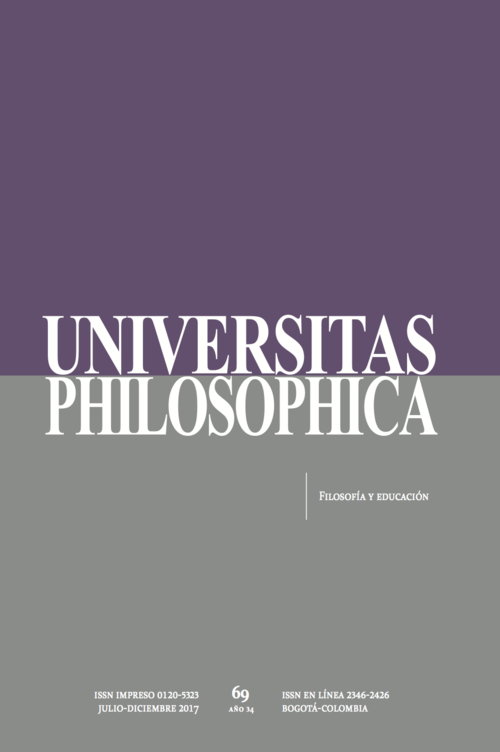Resumen
En el presente artículo, el autor reflexiona en torno al pasado, presente y futuro de una educación filosófica en el marco de un modo de vida democrático integrando tres niveles distintos: uno autobiográfico (allí la reflexión se suscita por la visión del cuaderno escolar de filosofía del padre del autor), otro conceptual (en donde se retoma la concepción pragmatista de la filosofía de John Dewey) y un tercero descriptivo y propositivo (en el cual se analiza lo que ha ocurrido en los últimos años con la enseñanza filosófica y se hace la propuesta de una educación filosófica consecuente con tales desarrollos). Se trata de poner de presente, sobre todo, los diversos desplazamientos y transformaciones que ha sufrido la enseñanza filosófica en el último siglo a través del contraste entre las viejas prácticas de una filosofía centrada en dar una “visión correcta del mundo” y las exigencias de una filosofía que cumpla una función crítica de la sociedad y el conocimiento, retomando con ello el ideal deweyano de que la filosofía cumpla con una función a la vez crítica y reconstructiva de la experiencia presente. Concluye el artículo proponiendo diez retos para la educación filosófica del futuro.
Esta revista científica se encuentra registrada bajo la licencia Creative Commons Reconocimiento 4.0 Internacional. Por lo tanto, esta obra se puede reproducir, distribuir y comunicar públicamente en formato digital, siempre que se reconozca el nombre de los autores y a la Pontificia Universidad Javeriana. Se permite citar, adaptar, transformar, autoarchivar, republicar y crear a partir del material, para cualquier finalidad (incluso comercial), siempre que se reconozca adecuadamente la autoría, se proporcione un enlace a la obra original y se indique si se han realizado cambios. La Pontificia Universidad Javeriana no retiene los derechos sobre las obras publicadas y los contenidos son responsabilidad exclusiva de los autores, quienes conservan sus derechos morales, intelectuales, de privacidad y publicidad.
El aval sobre la intervención de la obra (revisión, corrección de estilo, traducción, diagramación) y su posterior divulgación se otorga mediante una licencia de uso y no a través de una cesión de derechos, lo que representa que la revista y la Pontificia Universidad Javeriana se eximen de cualquier responsabilidad que se pueda derivar de una mala práctica ética por parte de los autores. En consecuencia de la protección brindada por la licencia de uso, la revista no se encuentra en la obligación de publicar retractaciones o modificar la información ya publicada, a no ser que la errata surja del proceso de gestión editorial. La publicación de contenidos en esta revista no representa regalías para los contribuyentes.


